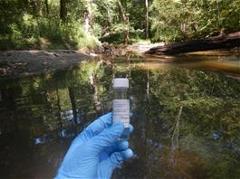House Subcommittee Hears from EPA, DoD on PFAS Risks
 (March 12, 2019) - The US House Committee on Oversight and Reform’s Subcommittee on Environment held a hearing on March 6 entitled, “Examining PFAS Chemicals and Their Risks.”
(March 12, 2019) - The US House Committee on Oversight and Reform’s Subcommittee on Environment held a hearing on March 6 entitled, “Examining PFAS Chemicals and Their Risks.”
Dave Ross, EPA’s Assistant Administrator for the Office of Water testified in the hearing alongside Maureen Sullivan with the US Department of Defense (DoD). Also, Congressmen Dan Kildee (D-MI) and Brian Fitzpatrick (R-PA) testified on the per- and polyfluoroalkyl substances (PFAS) contamination in their respective districts, and the needs of their communities with existing cleanup and greater public health and environmental protection.
EPA’s Action Plan on PFAS was released in mid-February. A majority of the subcommittee’s questions for Dave Ross were focused on the plan and the actions – or nonactions – EPA has outlined remaining calendar year and beyond.
Ross reiterated the Agency’s commitment to beginning the maximum contaminant level (MCL) rulemaking process under the Safe Drinking Water Act and listing PFOA and PFOS—two of the more recognized PFAS constituents—as hazardous substances under the Comprehensive Environmental Response, Compensation, and Liability Act (CERCLA).
NACWA is concerned with this potential CERCLA designation, and how it may potentially impact public clean water utilities that land-apply biosolids that may contain trace quantities of PFAS chemicals. EPA also acknowledged it is developing new analytical techniques to close the scientific gaps and develop a risk communication toolbox.
The Department of Defense (DoD) testimony during the hearing continued to support more research on PFAS. DoD also reiterated its position that aqueous fire-fighting foams (AFFF) that the military uses for training practices account for only a small percentage of contamination in the United States. Further, the DoD indicated that currently, there is no viable fluorine alternative that meets the DoD’s mission critical requirements while simultaneously protecting public health and the environment; it vowed to increase funding for additional research.
NACWA is closely tracking PFAS and the numerous moving pieces from EPA and Congress. If members have questions, or would like to discuss PFAS issues that they are experiencing in their communities, please contact Emily Remmel, NACWA’s Director of Regulatory Affairs.